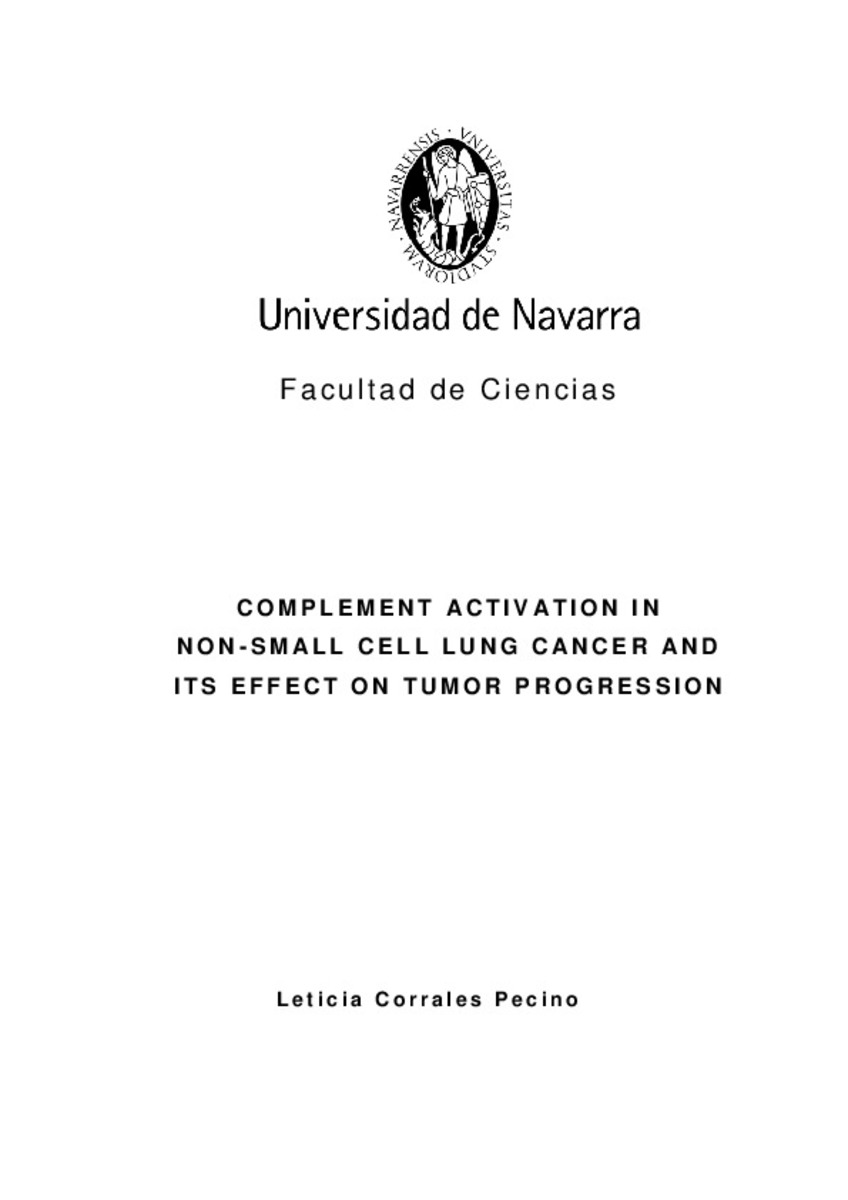Complement activation in non-small cell lung cáncer and its effect on tumor progresión
Palabras clave :
Cáncer
Tumores
Células
Materias Investigacion::Ciencias de la Salud::Oncología
Fecha de publicación :
2012
Fecha de la defensa:
18-mar-2011
Editorial :
Servicio de Publicaciones de la Universidad de Navarra
Cita:
CORRALES PECINO, Leticia. “Complement activation in non-small cell lung cáncer and its effect on tumor progresión”. Pío Oses, Rubén. Tesis doctoral. Universidad de Navarra, 2011
Aparece en las colecciones:
Estadísticas e impacto
0 citas en

0 citas en

Los ítems de Dadun están protegidos por copyright, con todos los derechos reservados, a menos que se indique lo contrario.








